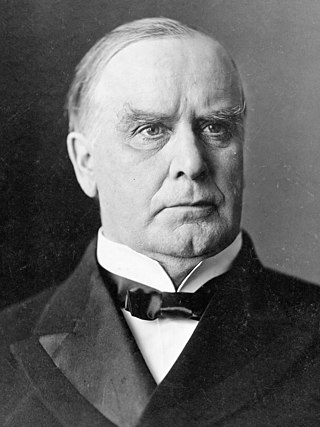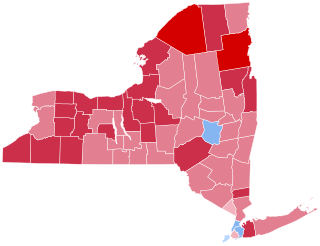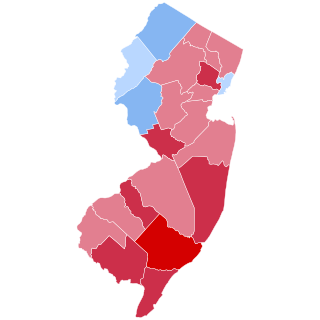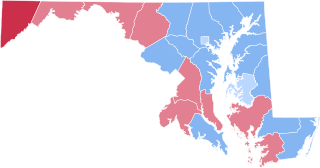
The 1900 United States presidential election was the 29th quadrennial presidential election, held on Tuesday, November 6, 1900. In a rematch of the 1896 race, incumbent Republican President William McKinley defeated his Democratic challenger, William Jennings Bryan. McKinley's victory made him the eighth president to win consecutive re-election and first since Ulysses S. Grant accomplished the same feat in 1872. Until 1956, this would be the last time in which an incumbent Republican president would win re-election after serving a full term in office. This election saw the fifth rematch in presidential history but the first to produce the same winner both times; neither would occur again until 1956.

The 1904 United States presidential election was the 30th quadrennial presidential election, held on Tuesday, November 8, 1904. Incumbent Republican President Theodore Roosevelt defeated the conservative Democratic nominee, Alton B. Parker. Roosevelt's victory made him the first president who ascended to the presidency upon the death of his predecessor to win a full term in his own right. This was also the second presidential election in which both major party candidates were registered in the same home state; the others have been in 1860, 1920, 1940, 1944, and 2016.

The 1908 United States presidential election was the 31st quadrennial presidential election, held on Tuesday, November 3, 1908. Republican Party nominee William Howard Taft defeated threetime Democratic nominee William Jennings Bryan. Incumbent President Theodore Roosevelt honored his promise not to seek a third term, and persuaded his close friend, Taft, to become his successor. With Roosevelt's support, Taft won the presidential nomination at the 1908 Republican National Convention on the first ballot. The Democratic Party nominated Bryan, who had been defeated twice previously, in 1896 and 1900, by Republican William McKinley.

Alton Brooks Parker was an American judge. He was the Democratic nominee in the 1904 United States presidential election, losing in a landslide to incumbent Republican Theodore Roosevelt.

The Arizona Republic is an American daily newspaper published in Phoenix. Circulated throughout Arizona, it is the state's largest newspaper. Since 2000, it has been owned by the Gannett newspaper chain.

The 1904 Democratic National Convention was an American presidential nominating convention that ran from July 6 through 10 in the Coliseum of the St. Louis Exposition and Music Hall in St. Louis, Missouri. Breaking with eight years of control by the Democratic Party's reform wing, the convention nominated conservative Judge Alton B. Parker of New York for president and Henry G. Davis of West Virginia for vice president.

The 1904 United States presidential election in New York took place on November 8, 1904. All contemporary 45 states were part of the 1904 United States presidential election. Voters chose 39 electors to the Electoral College, who selected the president and vice president.

The 1904 United States presidential election in Nevada took place on November 8, 1904, as part of the 1904 United States presidential election. Voters chose three representatives, or electors to the Electoral College, who voted for president and vice president.

The 1904 United States presidential election in New Jersey took place on November 8, 1904. All contemporary 45 states were part of the 1904 United States presidential election. State voters chose 12 electors to the Electoral College, which selected the president and vice president.

The 1904 United States elections elected the members of the 59th United States Congress. It occurred during the Fourth Party System. Republicans maintained control of the presidency and both houses of Congress. For the first time since the 1828 election, no third party or independent won a seat in Congress.

The 1908 United States presidential election in Virginia took place on November 3, 1908, as part of the 1908 United States presidential election. Voters chose twelve representatives, or electors to the Electoral College, who voted for president and vice president.
Newspapers made endorsements of candidates in the 1900 United States presidential election. Incumbent President William McKinley was the Republican candidate, and William Jennings Bryan the Democratic candidate, a rematch of the 1896 election.

After U.S. President William McKinley was assassinated in 1901, Theodore Roosevelt became the new U.S. President. Roosevelt's first term was notable for his trust busting, his successful arbitration in and resolution of a 1902 strike of 150,000 Pennsylvania coal miners, his advocacy against lynching, his conservation efforts, and the Panama Canal Treaty. In 1904, Roosevelt easily defeated Bourbon Democrat Alton Parker and won a second term as U.S. President.

The 1908 U.S. presidential election occurred in the backdrop of the progressive achievements of U.S. President Theodore Roosevelt's second term as well as against the U.S. recovery following the Panic of 1907. In this election, Roosevelt's chosen successor, Republican William Howard Taft, ran in large part on Roosevelt's progressive legacy and decisively defeated former congressman and three-time Democratic U.S. presidential candidate William Jennings Bryan. Overall, the 1908 presidential campaign and election were about labor issues, trusts, campaign finance reform, imperialism, and corruption.

The 1904 United States presidential election in Michigan took place on November 8, 1904, as part of the 1904 United States presidential election. Voters chose 14 representatives, or electors, to the Electoral College, who voted for president and vice president.

The 1904 United States presidential election in Maryland took place on November 8, 1904. All contemporary 45 states were part of the 1904 United States presidential election. State voters chose eight electors to the Electoral College, which selected the president and vice president.

The 1904 United States presidential election in North Carolina took place on November 8, 1904. All contemporary 45 states were part of the 1904 United States presidential election. Voters chose 12 electors to the Electoral College, which selected the president and vice president.

The 1908 United States presidential election in Maryland took place on November 3, 1908. All contemporary 46 states were part of the 1908 United States presidential election. State voters chose eight electors to the Electoral College, which selected the president and vice president.

The 1908 United States presidential election in Kansas was held on November 3, 1908 as part of the 1908 United States presidential election. Kansas voters chose ten electors to the Electoral College, who voted for president and vice president.

















